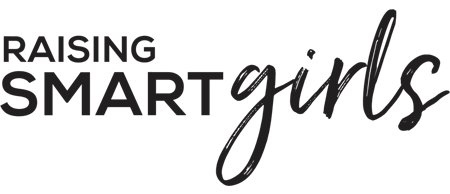As parents, nothing makes us happier than knowing our kids are doing well. We want them to be happy, have friends, and make grades that will lead to great colleges and amazing careers. We love celebrating the, “A’s,” on the report card and listening to our children go on and on about things they’ve learned in school. It fills us with a sense of satisfaction and gives us hope that they’re going to be just fine. So when things are not right in our children’s worlds, nothing feels right in ours. Having a child who struggles in school can be heartbreaking. We fear for their future, and the feeling of helplessness is frustrating.
Sometimes that frustration turns toward the child. At some point, we question our child’s efforts and possibly blame her for not trying hard enough. The struggling student also feels the frustration, and an ugly cycle of resentment and anger can begin, pushing the parent-child relationship to its breaking point without ever really addressing the real issue of a child in crisis.
Dr. Richard Selznick’s The Shut-Down Learner: Helping Your Academically Discouraged Child can help. In his book, Dr. Selznick helps parents understand their struggling child in a new way and gives numerous practical strategies to help these children become more successful.
The Shut-Down Learner, according to Dr. Selznick, is a student who has just quit trying. This student is beaten down from years of effort and years of perceived failure. The shut-down learner might seem angry or withdrawn or the reverse, perky yet insecure. Either way, this student is not thriving and needs help.
The Shut-Down Learner, according to Dr. Selznick, is a student who has just quit trying. This student is beaten down from years of effort and years of perceived failure. The shut-down learner might seem angry or withdrawn or the reverse, perky yet insecure. Either way, this student is not thriving and needs help. With a very conversational tone, Dr. Selznick addresses the topic with compassion and a high level of understanding. He’s worked with children with learning disabilities for many years, allowing him to notice some patterns in behavior and to develop tips to help a struggling student regain confidence. By helping parents see their children’s unique gifts, Dr. Selznick is able to help parents and children work together to reach the child’s full potential. We chatted with Dr. Selznick earlier this month to get some insights on how math anxiety in a young child could escalate to shutdown learning and what parents can do to prevent it.
Raising Smart Girls (RSG): How early can you identify if your child is a shutdown learner?
Rick Selznick (RS): I’m a psychologist, and I have evaluated a couple of thousand kids throughout my career. I have a battery of tests that I give where everyone is able to see the kid’s characteristic strengths and weaknesses, or what I call, “cracks in the foundation.” I think you can identify the cracks in a child’s foundation as early as four years old.
And, while I am not comfortable with labeling, in general, I will say to a parent of a four year-old what the problem is if I find a problem. Not to downplay the process at schools, but frequently, there is a procedure to follow where teachers have to watch a child’s behavior for one or two years before taking action. That way, it’s put off until they are six, seven, or eight. Once your child has hit eight or nine, the cracks are no longer cracks. They’ve widened into significant defects that could have been addressed at age four.
I have a battery of tests that I give where everyone is able to see the kid’s characteristic strengths and weaknesses, or what I call, “cracks in the foundation.” I think you can identify the cracks in a child’s foundation as early as four years old.
RSG: How does shut down learning typically manifest itself?
Over the years, there are two trends I have noticed. Shutdown learners tend to exhibit traits in two ways. The first, which I call, “Style One,” is where the child is completely fed up with learning, has a bad attitude, and just doesn’t want to engage at any level anymore. “Style Two,” I describe as pleasant and terribly insecure. I typically see this in female learners more than males. In the book, I describe a girl named, Sarah, who was a pleasure to have in class. She always enters the class smiling and seems to get along very well with other kids during class, though Sarah never participates and always seems as if her mind is elsewhere.
Sarah’s work reflected a general lack of effort. It was clear that she felt poorly equipped to manage her classes, and her positive demeanor in school was largely a coverup designed to keep others from seeing how embarrassed and insecure she felt. Style Two kids have learned one thing that has served them well. They are good at navigating social waters and teachers and other adults see them as positive and engaging, and hence they don’t get referred for additional help.
RSG: So, you’re saying that one of the biggest, significant differences between males and females when it comes to shutdown learning is that males exhibit traits differently? One is pretty good at covering it up, because he/she can use social skills to get by. And the other is pretty brazen about it. Are there significant differences between male and female learners and how they exhibit traits of shut down learning of which parents should be aware?
RS: Correct.
There is a clear contrast between the “Style One” and “Style Two.” This is what I see for girls in particular, and I’m generalizing, of course; it’s not all girls and not all boys. I’m talking on average, it is a bend towards “Style Two” where their learning insecurities are masked by their general openness to learn. However, the child ends up with only a cursory knowledge of the learning material and continues to struggle as more advanced topics are introduced.
RSG: When it comes to math, studies have shown that many parents suffer from math anxiety and unassumingly pass that on to their kids. How can parents recognize math anxiety in themselves and their children? What are some practical tips for working with a child who has math anxiety or anxiety about learning a particular subject?
RS: I do think math anxiety can be jarring, and it stems from the realization of one’s inability to be fluent in understanding math concepts. Many parents didn’t have a great relationship with math when they were young and are now asked to essentially become math coaches for their children when they help with homework. It is easy to pass on subtle negative messages about the subject if one is not intentional about censoring those thoughts and feelings.
For kids that are prone to anxiety and already feeling insecure about tests and schoolwork, math anxiety can be particularly crippling, initiating a pretty significant and vicious cycle the — I hate math—kind. I don’t consider myself good at math. My wife and I have two kids, and it turned out one is a natural at math, and the other one is not. It happened to be the way you would predict also: male, female. To help your child, the most important thing you can do is manage your frustration level as you try to navigate learning math with your child. Consistently reinforce to your child that they are smart and capable and that with extra practice, they can build their math confidence. Lastly, get your child professional help in the form of tutors and learning specialists if that is what will serve them best.
Many parents didn’t have a great relationship with math when they were young and are now asked to essentially become math coaches for their children when they help with homework. It is easy to pass on subtle negative messages about the subject if one is not intentional about censoring those thoughts and feelings.
RSG: Over the last decade, since your book was published, have there been any updates to the research on the shutdown learner that would be useful to share?
RS: My recent research has been focused on Dyslexia and related learning disabilities; however, I do have a blog that goes out every Friday on my Shut Down Learner website. I provide regular insights on relevant topics of interest to parents. For example, we are currently featuring content on how to effectively help with homework to support parents as the school year ramps up.
RSG: If parents can only take away one thing from this conversation, what would it be?
RS: Watch your anger and frustration. If you think something is going on, turn down the heat and seek help. There is no shame in getting help.
Dr. Selznick is a psychologist, nationally certified school psychologist, adjunct graduate school professor, university professor of pediatrics, and a school consultant. He is the author of the book The Shut-Down Learner: Helping Your Academically Discouraged Child and School Struggles: A Guide to Your Shut-Down Learner’s Success and the recently published Dyslexia Screening: Essential Concepts for Schools & Parents. As director of the Cooper Learning Center, Dr. Selznick oversees a program that assesses and treats a broad range of learning and school-based academic and behavioral problems. The Cooper Learning Center, established in 1995 by Dr. Selznick, is a division of the Department of Pediatrics of Cooper University Health Care.
If you would like to contact Dr. Richard Selznick, you can find information on how to reach him on his website. Also, you can get a copy of his book, The Shutdown Learner from Amazon.

